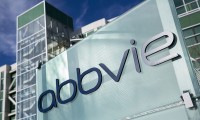-
Sanofi Taps into Berg’s AI Platform for Developing Better Flu Vaccine
- Source: researchmoz.us
- 640
- November 8, 2017
-
FDA approves first treatment for certain patients with Erdheim-Chester Disease, a rare blood cancer
- Source: Worldpharmanews
- 443
- November 8, 2017
-
Merck, Pfizer launch Bavencio for rare skin cancer
- Source: Pharmatimes
- 488
- November 7, 2017
-
‘Precision Medicine’ may not always be so precise
- Source: worldpharmanews
- 551
- November 6, 2017
-
China’s Import and Export Report of Antineoplastic Drugs
- Source: Ddu
- 1,498
- November 3, 2017
-
Bristol-Myers, J&J sink cash into a new $95M European biotech fund
- Source: Endpts
- 617
- November 3, 2017
-
FDA approves new treatment for adults with mantle cell lymphoma
- Source: Prnewswire
- 785
- November 1, 2017
-
Novartis Slams Down $3.9B for This French Cancer Biotech
- Source: Biospace
- 802
- October 31, 2017
-
Alector and AbbVie Announce Collaboration to Advance a Novel Class of Immune Therapies for Patients with Alzheimer’s Disease
- Source: finance.yahoo
- 677
- October 26, 2017
your submission has already been received.
OK
Subscribe
Please enter a valid Email address!
Submit
The most relevant industry news & insight will be sent to you every two weeks.













